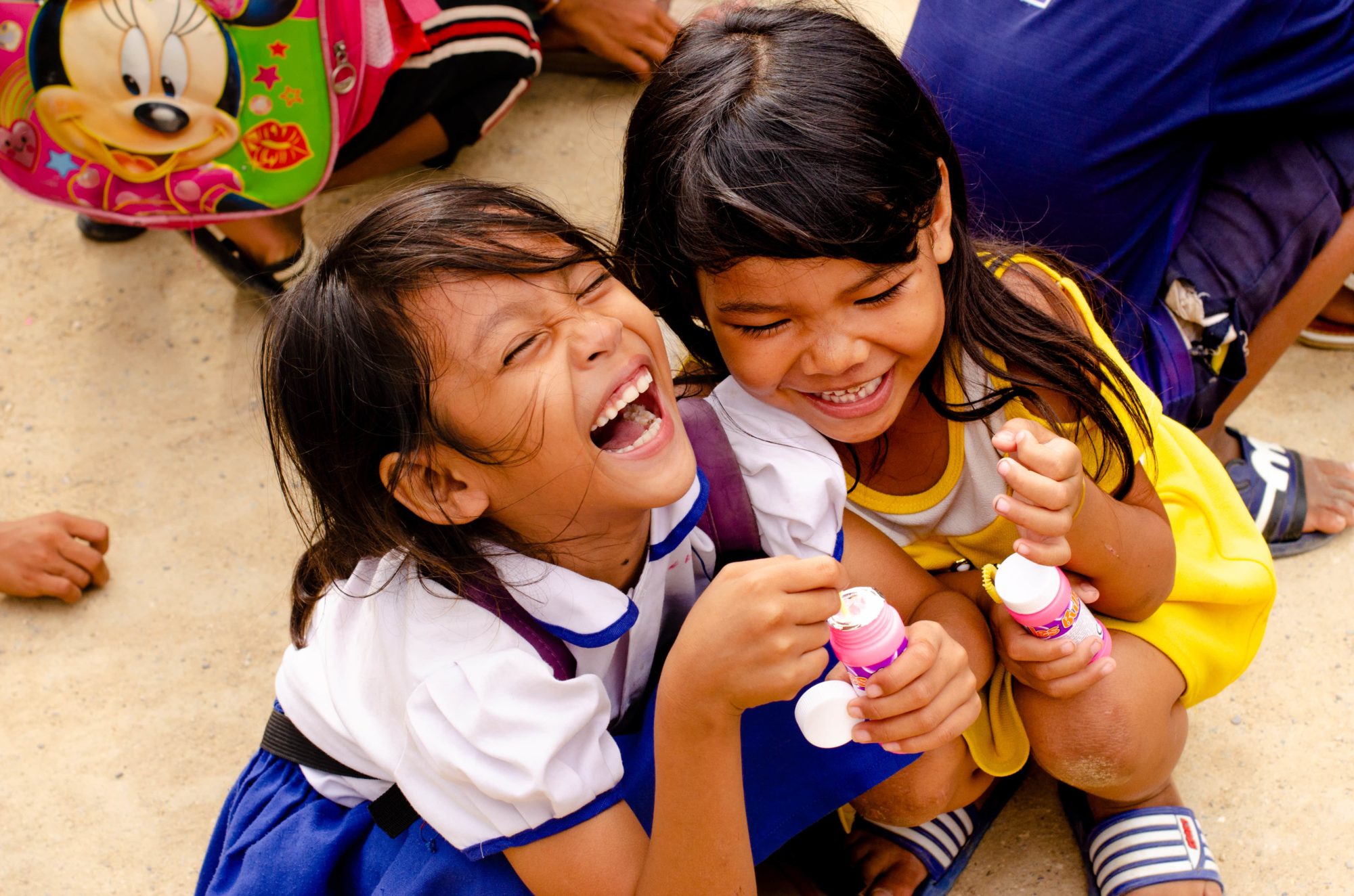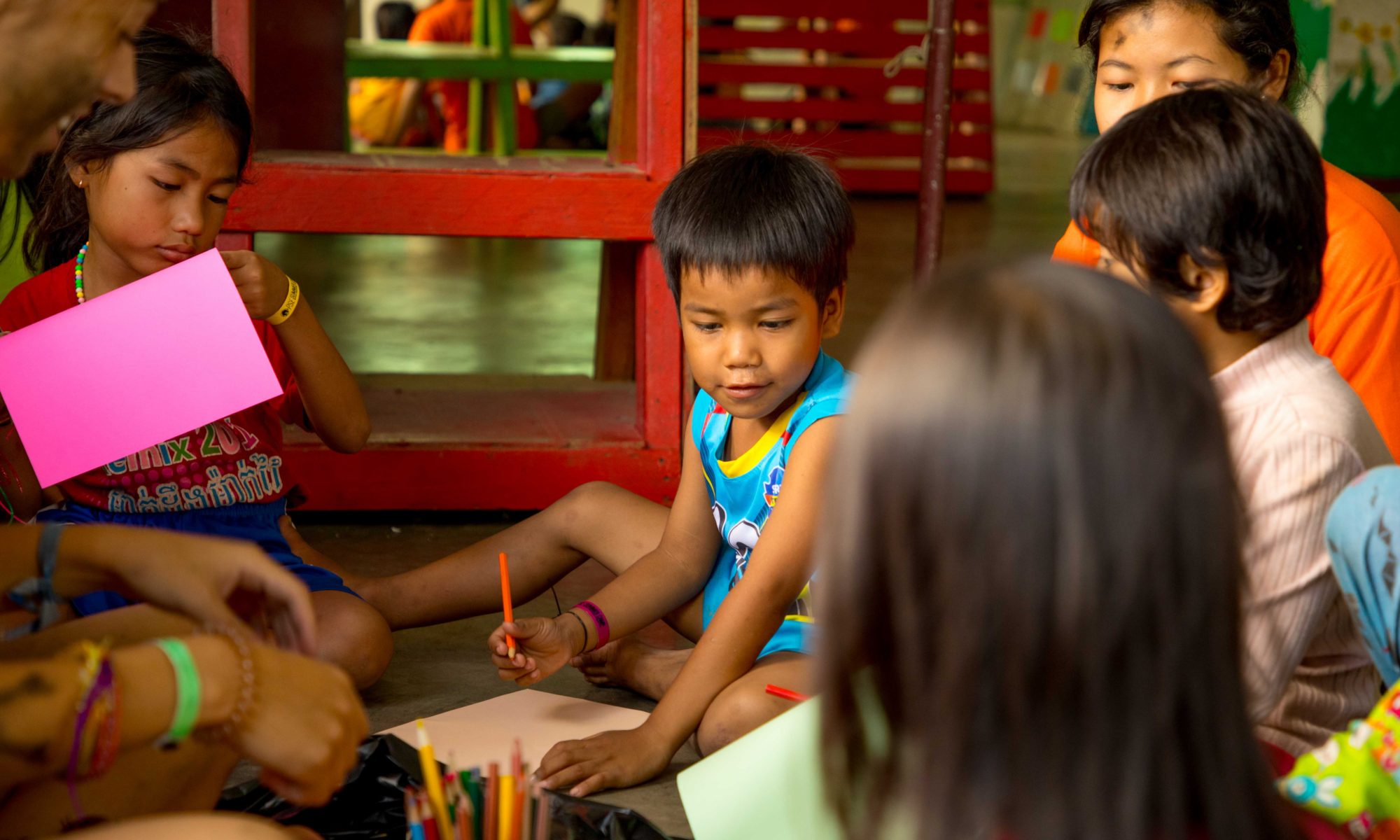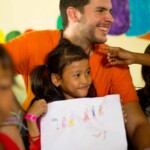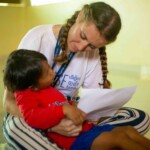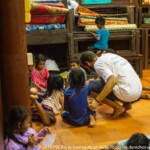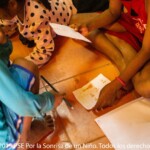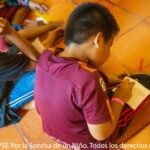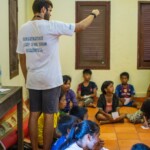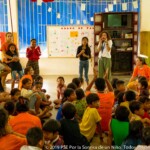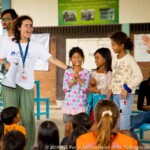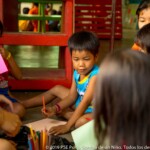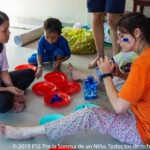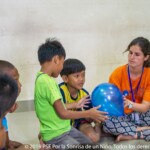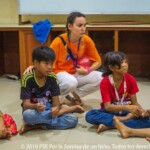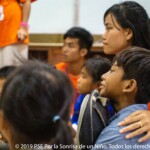Emotional Intelligence is basically the ability to recognize, understand and manage emotions, one’s own emotions as well as the others’. Although it sounds easy and simple, in reality, it is not at all. It is essential to know when they are felt, how did they happen, how to control and manage them. All of these help developing self-confidence and empathy.
Health is not only about physical health, but also about mental and most of NGOs’ education centers don’t take it into account enough. That’s why, with the help of Fernando Restoy, who is volunteering for the Summer Program for 6 years and is a student from Daniel Goleman’s School – world expert of emotional intelligence, PSE wants to start developing this new kind of education starting from next year. The concept of emotional intelligence has gradually been introduced throughout the School Continuity Program to ensure the children have the basic knowledge.
Emotional Intelligence provides a set of skills related with emotions; emotion awareness, emotion management and social and relationship management. This means recognizing own and other feelings and emotions and knowing how to control them in order to always act as a matter of choice and never driven by their emotions. An emotional intelligent person knows how to manage their anger and their sadness, how to balance their emotions, how to be resilient, how to be empathic, how to manage conflicts or how to work and manage teams.
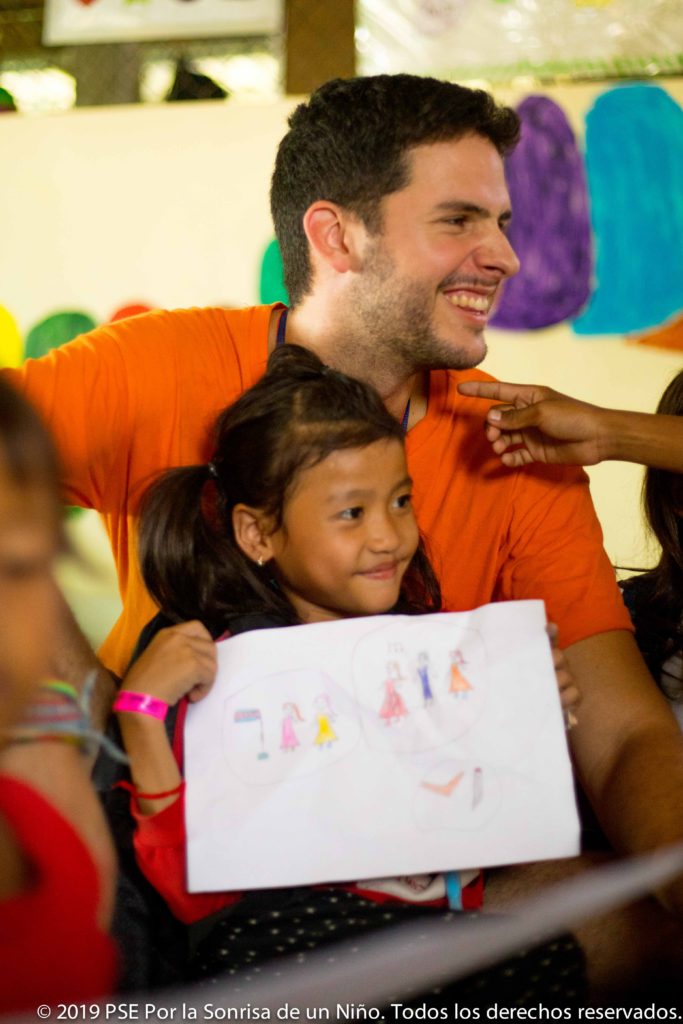
Developing its emotional intelligence skills helps one’s abilities about resilience and empathy.
According to Daniel Goleman, who is the world’s greatest expert on emotional intelligence, one’s IQ stays more or less the same whether it is trained a lot or not. It can be improved with mental agility exercises, but only a little. While emotional intelligence can be improved and in larger proportions. In United States and in some European countries this other way of educating is already implemented, to improve general education. Indeed, emotional intelligence explains why some people are more successful than others with the same level of math or English. To Fernando, this explains why it should be implemented in every school in the world, however it should be even more “ in countries that went through conflicts, wars or any kind of trauma”. Because developing its emotional intelligence skills helps one’s abilities about resilience and empathy.
The recent history of Cambodia with the Khmer Rouge, left a country that does not know what empathy is. The traumas of this past have remained in the current adults’ minds who were once child soldiers and “they will educate their children as they have been educated,” explains Fernando. “Cambodia is a perfect example to understand what happens in a country if the mental health of a whole generation is not taken care of. Everything we do, live and see shapes our personality forever.”
Developing an emotional intelligence-oriented program to accompany the kids becomes therefore, a matter of time.
The young Spanish volunteer, freshly graduated, realized last year the important role emotional intelligence can play, when he was coordinating the Teenagers’ program: “there, you can see perfectly what these children lack of, how severely harmed is their mental health”. Indeed, teenage is a crucial period of their lives during which they go through many questionings and have to take even more decisions. And these are often the result of emotional thoughts and not rational ones. As a matter of fact, they don’t know how to control their emotions, also because they don’t know how to identify them. Coupled to their hard life conditions and the lack of empathy and listening they face, they are very prone to depression or sadness and end up leaving PSE, tempted by earning easy and fast money. Developing an emotional intelligence-oriented program to accompany the kids becomes therefore, a matter of time.
Among all the children taken care of by PSE, there is a second program within kids are especially vulnerables: the Pensionnaires. Indeed, they live in PSE the whole year often because they are orphans, or because they parents cannot take care of them – for financial reasons or safety ones. “Sometimes, they start to feel lonely and get depressed which might lead them to think negatively and decide to walk the wrong path which would badly affect their future.” explains Srey Phim, Khmer monitor and Pensionnaire for almost ten years. For these reasons, working on emotional intelligence with them is essential. Giving them the opportunity to talk about what they lived, what they saw, what they felt is primordial. First, because they need to speak loud all of these and meeting a listening ear is not common for them, then because it makes them wonder why this happened, why did they react this way and therefore start thinking by themselves and learning how to properly react to a given situation.
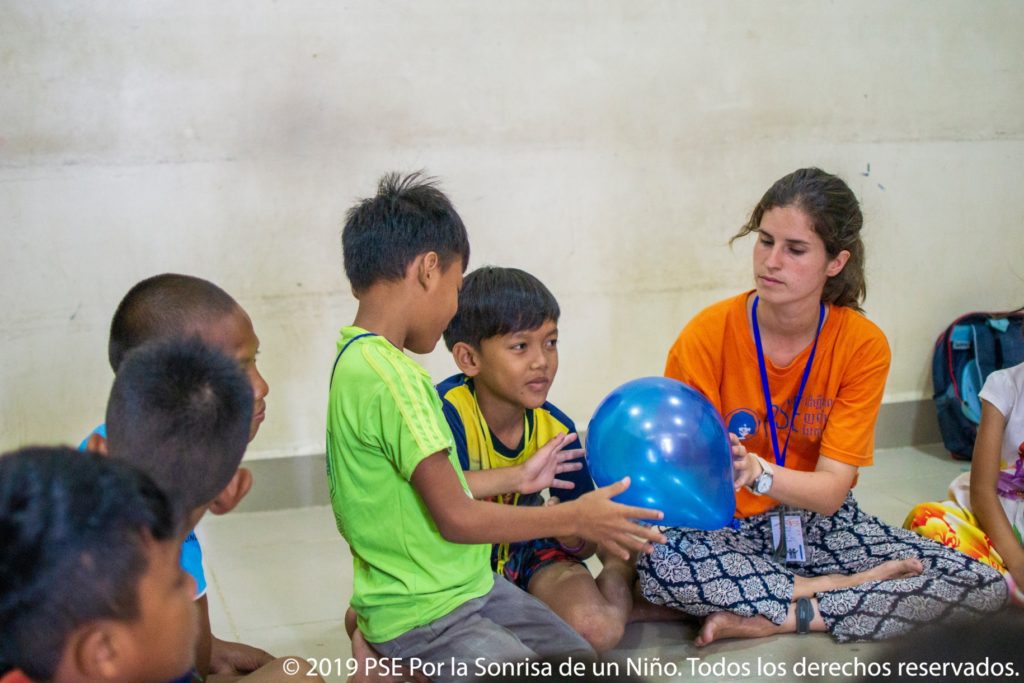
If the Pensionnaires’ program has been chosen to be the first one to experiment the introduction of emotional intelligence workshops throughout the coming year, all the projects from the summer program started to introduce the topic to children, as a preparation for what will be done. Whether it was by encouraging kids to draw their dreams, by giving them the time to express what they thought about a given activity, by asking them to fill in a “feeling table” at the end of the day or by talking with them about how to react to violence, all the monitors got very motivated and involved in this project. “We did different activities : it wasn’t the same activity for the little ones and for the older ones. For krom muy and pi (the youngest ones), at the beginning we were drawing only the three basic emotions: happiness, sadness and anger. We started with the happy one, and asked the kids to talk and share. They were saying examples of when they were feeling happiness: when they are with their families, when they eat chocolate, when they dance,… different kind of things. Then, when do you feel sad? Sadness was all about treating each other, and then when they were feeling anger”, Lourdes, monitor for the Pensionnaires. Different activities have been set up among the different programs, according to their specificities, but the global responsiveness of children was excellent.
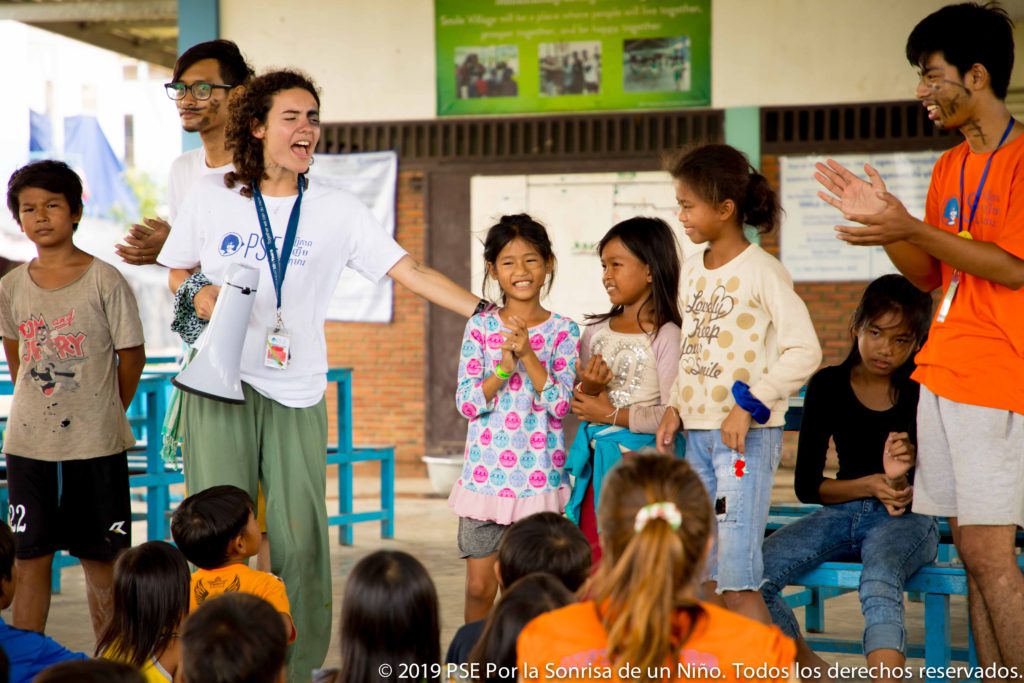
“The more, the better. The sooner, the better”, Fernando.
Bringing in the emotional intelligence thematic during the summer program allowed to identify what worked and what didn’t as well as introducing the children to this new educational program. “Teaching this since they are 0 years old, 1, 2, 3… is key. The more, the better. The sooner, the better”, explains Fernando. “PSE does an incredible job, as, in my opinion, 99% of the world’s NGOs, rescuing child from being soldier, from extreme poverty, giving them education, food, health… However, mental health is not yet treated on the long-run”. And, indeed, it is something to teach maths, Khmer and English to children, it is even better to teach them a trade, yet, to be fulfilled and mentally balanced emotional intelligence is the key.
